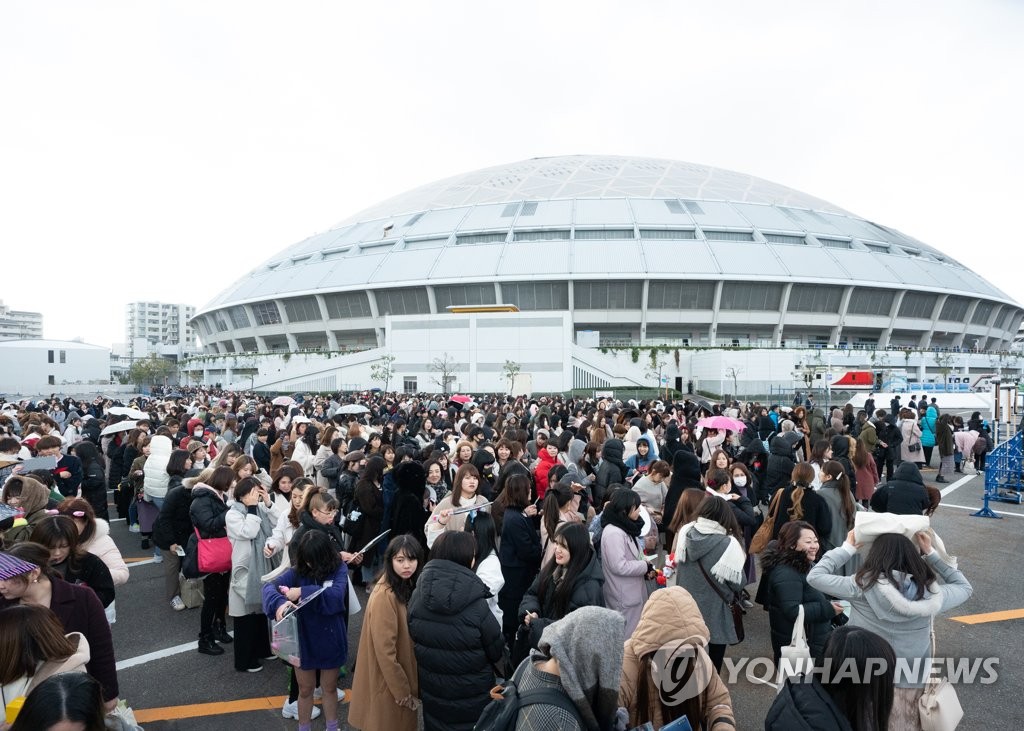Large planning company-IT company joint venture surrounding the platform… Diversification of non-face-to-face content

[엠넷 제공. 재판매 및 DB 금지]
(Seoul = Yonhap News) Reporter Kim Hyo-jeong and Oh Bo-ram = While the new coronavirus infection (Corona 19) is prolonging, the K-pop industry is also undergoing significant changes.
As K-pop fandom grew globally, and the fandom business centered on non-face-to-face content instead of performances in full bloom, the importance of online platforms increased. As a result, there is a fierce collaboration between large agencies and IT companies using online platforms.
However, in such a’new edition’, the industry’s rich and poor can also accelerate.
As the K-pop industry is immersed in content diversification, some voices are concerned about excessive commercialization using idols.
◇ Idol industry with high expandability… K-pop is getting bigger
Since last year, there has been a shift in perception in the K-pop industry as large agencies and between agencies and IT companies have been collaborating.
Big Hit Entertainment, which has grown into the nation’s largest agency with the success of BTS, took over Naver’s V-Live and decided to create a new platform that integrates with its fan platform Weverse. Concluded.

(Seoul = Yonhap News) A total of 993,000 people watched the paid online concert’BTS Map of the Sol One’ of the group BTS (BTS) held on October 10-11 last year in 191 countries, according to the agency Big Hit Entertainment 12 Sun said. The picture is BTS showing an online concert. 2020.10.12 [빅히트엔터테인먼트 제공. 재판매 및 DB 금지] [email protected]
NCsoft, which recently launched a new K-pop platform’Universe’, decided to establish a joint venture within this year in partnership with CJ ENM.
SM Entertainment and JYP Entertainment together established an online concert’Beyond Live’ operator last year. Naver’s investment was also made in the’Beyond Live’ business.
It seems that the’pan’ of the K-pop industry is growing because the fandom business is so scalable.
The performance market was stopped due to the pandemic, but instead various derivative contents using idol IP (intellectual property) are pouring out. Beyond sound sources and online performances, secondary and third content such as idol characters, avatars, games, and documentaries are being actively produced.
At the end of last year, at the’Contents Industry 2020 Settlement and 2021 Prospects’ Seminar hosted by the Korea Creative Content Agency, FNC Entertainment Manager Yoo Soon-ho said, “Corona 19 has had a paradoxical effect that has accelerated the advancement of content and technology that future K-pop needs to advance. “I have said that.
K-pop is a culture that is attracting attention from Generation Z all over the world, and there is a lot of room for the consumer to expand.

[YG엔터테인먼트 제공]
Gaon Chart Senior Research Fellow Kim Jin-woo analyzed that “the market size is large enough to be difficult to predict because it encompasses not only domestic but also global fandoms,” and “It is similar to the situation when large corporations entered the fandom market in the past.” did.
Online platforms that can distribute various K-pop contents to global fandoms naturally emerged as a battlefield.
Researcher Kim said, “It is the moment when the boundaries between the entertainment industry and the IT industry are breaking down.” “In the past, the profit model was simple as the music market, but now the fandom market has grown so much, and agencies are trying to distribute their contents directly, so the IT industry It has become a situation that has no choice but to go to the side.
However, as the industry reorganization centered on large agencies and large IT companies accelerates, it is predicted that small and medium-sized companies with weak capital will have a narrower position.
◇ Changing K-pop profit structure… Pay for communication content
As the scalability of idol IP becomes important, changes are taking place in the K-pop industry’s profit structure. Indeed, the artist’s’everything’ is made as paid content and sold to fans.
It has evolved from the level of showing music contents such as albums, sound sources, and music videos and communication contents in the level of’fan service’ in parallel to a more sophisticated fee-based mechanism.
In particular, large companies with technological prowess tend to offer’paid communication’ services one after another.
SM provides a one-on-one chat’Bubble’ between artists and fans through fan community listening. In’Bubble’, fans can receive personal messages from singers and fans can reply to singers. Other agencies such as JYP, FNC, and Jelly Fish also joined the bubble.

[클렙 제공]
‘Universe’ also released a’private message’ that receives messages written by idols.
These contents are also welcomed by fans in that they can increase the intimacy between fans and artists and replace some of the impossible face-to-face encounters with Corona 19.
However, there are also voices of criticism that excessive commercialization can have an adverse effect.
For example, Universe provides an AI (artificial intelligence) voice developed in the form of an idol’s voice and a’private call’ function that calls at a desired time for a fee, but the so-called’some’ situation in the call mode and unnatural voices Negative opinions from fans poured out. Many pointed out that’idol content without idols’ that machines imitate people feel bizarre and unpleasant.
Popular culture critic Kim Heon-sik said that love for stars is based on aspiration for real people, not fakes, and pointed out that “if AI does not properly embody real people, there is a possibility of damaging the’real” image.
As criticism continued, NCsoft recently eliminated some dialogue situations, including’some’ in private calls. NCsoft told Yonhap News that “we are constantly monitoring user feedback and improving it in a better direction.”
Gyu-tak Lee, a professor at the Faculty of Liberal Arts at George Mason University in South Korea, pointed out that “the creation of communication content for fans around the world that is difficult to meet is that the agency has responded wisely,” but “developers should also have a better understanding of idol culture.”
Unauthorized reproduction-prohibition of redistribution>
2021/02/08 07:00 sent
